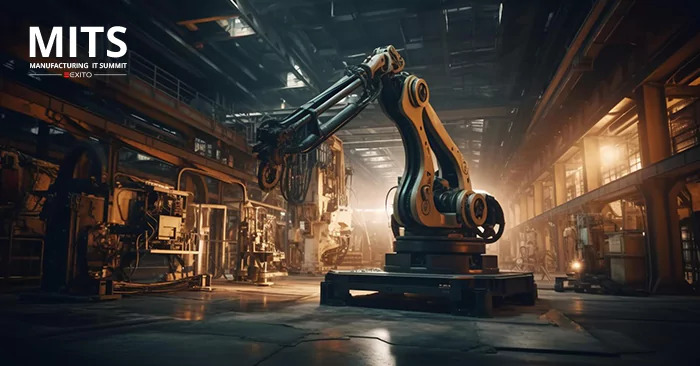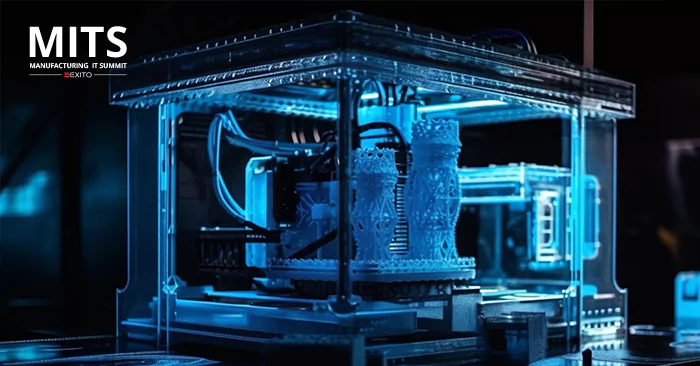Leveraging IoT for Sustainable Manufacturing: Benefits and Applications
The Internet of Things (IoT) is completely transforming the way businesses are being carried out, especially in the manufacturing industries. It’s a key player in reshaping the industries globally, and the manufacturing sector leverages this technology very efficiently.
But what exactly is IoT? IoT technology refers to the network of objects that have sensors and technologies integrated in them for the purpose of transferring data across other systems over the internet.
As for IoT’s role in the manufacturing industry, it majorly contributes towards promoting sustainable manufacturing practices. When IoT devices are utilised in manufacturing processes, companies can improve in terms of efficiency, effective utilisation of resources and environmental impact.
The subsequent points elaborate on how IoT contributes to enabling sustainable manufacturing practices:
1. Improved waste management:
Many manufacturing industries deal with the issue of waste management and IoT is here to mitigate this issue by introducing real-time monitoring and optimisation capabilities. Through the effective utilisation of IoT sensors, manufacturers can track various waste management processes, leading to minimised waste and better environmental impact. These sensors are instrumental in monitoring waste levels, thereby reducing waste overflow.
By enhancing waste management, IoT products encourage us to create a green economy by promoting practices like recycling, responsible waste management, etc.
2. Enhanced emission monitoring:
Greenhouse gas emission sources in manufacturing industries are one of the major reasons for the depletion of the environment, and network IoT assists in keeping the levels of these gases in check.
By consolidating both Smart IoT sensors and data science tools, environmental monitoring can be made easy. These tools are capable of reporting with maximum accuracy, the levels of gas emissions produced by engines and facilities. Thus, it provides you with reliable information about GHG emissions across all possible channels.
3. Comprehensive supply chain and fleet management:
Another major role of IoT products in sustainable manufacturing includes in fleet and supply chain management.
In fleet management, smart tools can integrate GPS to track the vehicle’s location and health and important elements like fuel consumption, and alert if there is a need for maintenance. In addition, route planning can help optimise fuel usage as well as reducing harmful emissions let out when the car is left idle.
Whereas in supply chain management, smart IoT sensors can be leveraged to monitor the temperature and humidity of the produce while it is being transported, and send out alerts to the staff if any problem arises.
4. Establishing high quality products:
Manufacturing superior quality products is one of the main aims of a manufacturing industries and network IoT enabled sensors facilitate in achieving that aim. These sensors detect the change, if any, in the product composition and send signals to the assigned operators.
Through this, high-quality products can be established that in-turn improves customer satisfaction, reduces waste and boosts the organisation’s profit.
5. Minimising downtime to a vast extent:
Manufacturing of superior quality products isn’t enough, what’s more important is the completion of production on time without any hitch in the process. If the machines tend to deteriorate before the completion of production, it can cause brutal losses.
The IoT system comes to the rescue yet again by preventing manufacturers from such losses. When IoT induced sensors are integrated in the machines, an alert signal is transmitted when its performance relatively declines. Having these issues detected in advance helps in faster production and reduces severe losses as well.
From the above-mentioned points, it’s evident that IoT solutions are positively impacting sustainable manufacturing to a great extent. The implementation of IoT in the operations of the manufacturing industry is expected to result in significant growth in the coming years.
Conclusion:
In conclusion, IoT in manufacturing industries globally is expected to generate a revenue of approximately 80 billion by the year 2026, establishing a CAGR of around 11% from 2021 to 2026. This proves that IoT is only going to make things swifter and easier for the manufacturing industry. By reducing green house emissions, early detection of faults and preserving the quality of products, IoT is gaining recognition in various industries. The potential of the IoT system in contributing to a greener economy will soon renew the image of all industries across the world.
Moreover, The upcoming 23rd Edition of The Saudi Manufacturing event could be a remarkable opportunity for you to grow your manufacturing industry through heaps and bounds by learning from industry experts on how to inculcate such advanced technologies into your operations.
contact us at Exito Media Concept Pvt Ltd













